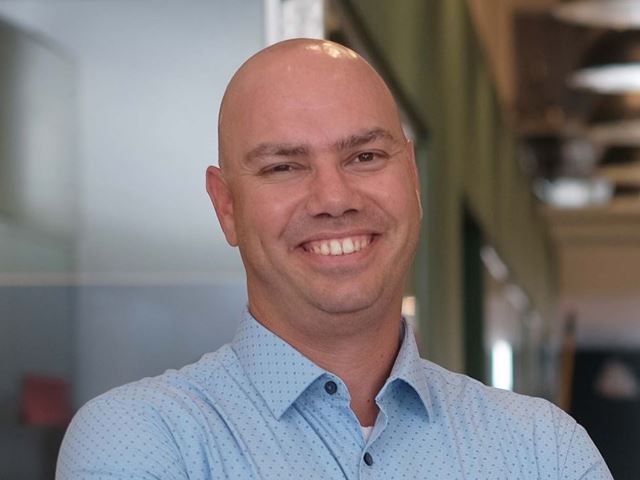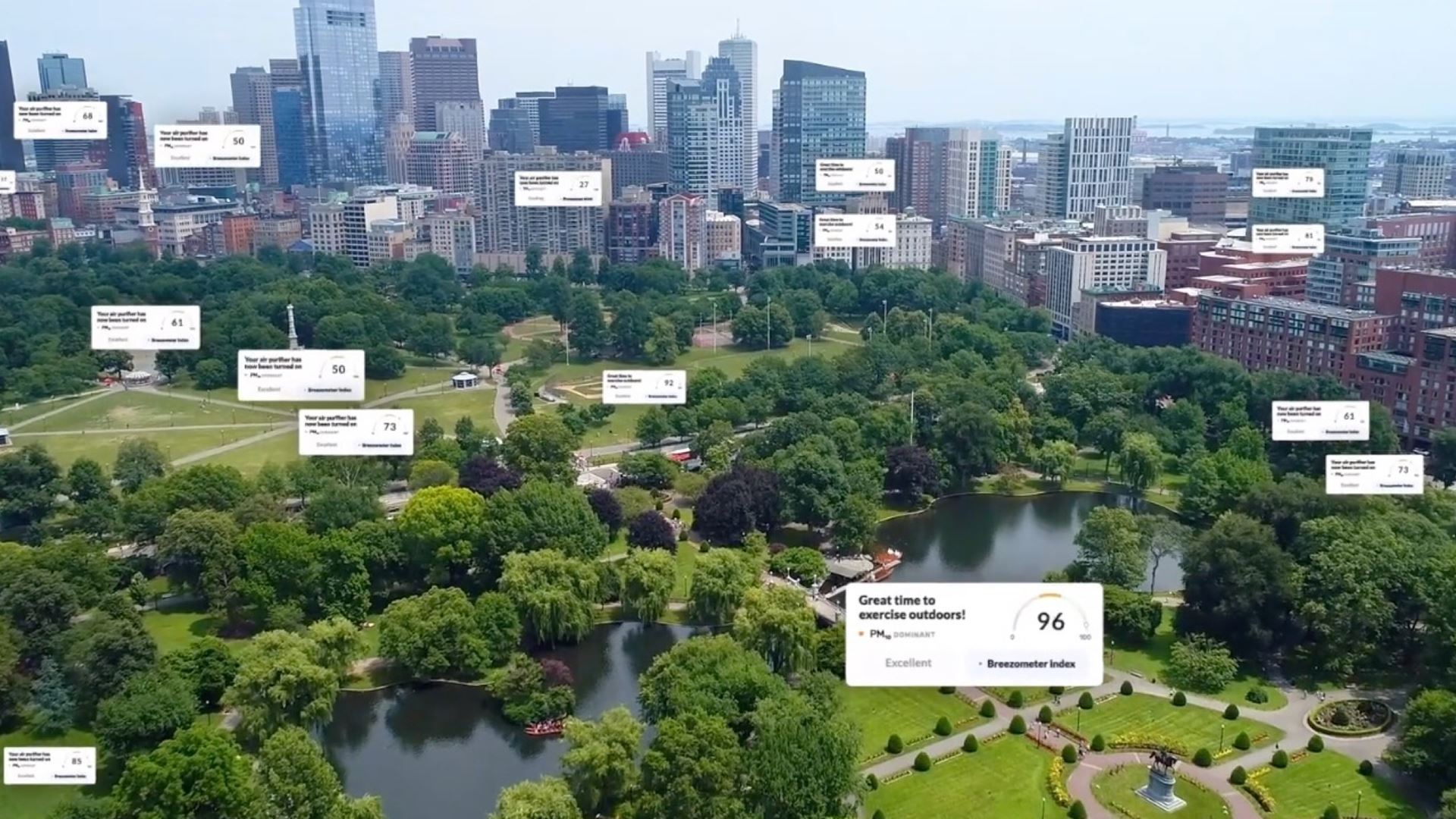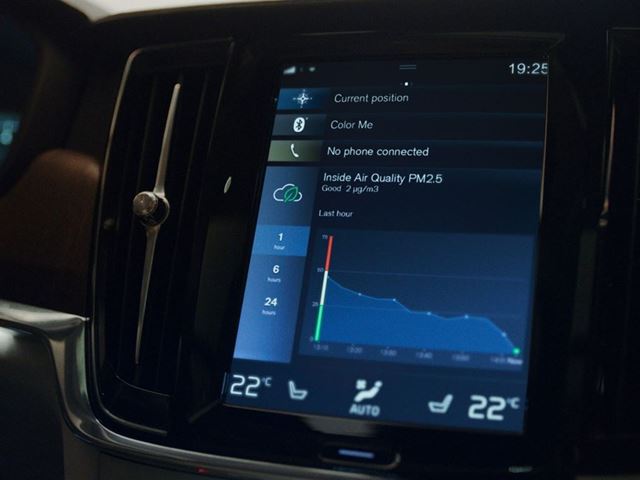
- Latest: Welcome to Auto Futures - Mobility News, Features, Exclusives and More...
- Latest: Mercedes-Benz Unveils the SUSTAINEER - an Electric Last-Mile Delivery Solution
- Latest: XPENG & Volkswagen to Jointly Develop Electrical/Electronic Architecture in China
- Latest: Honda Unveils Ye - its Next-Generation EV Series for China
- Latest: JLR Launches Portable Battery Energy Storage System Using 2nd-Life PHEV Batteries
- Latest: The US Startup Rolling out Urban Curbside EV Charging - Voltpost's CEO
How Google-Owned BreezoMeter is Helping Commuters Choose Clean air - CEO Ran Korber
Rahul Dutta Roy
- Nov 23 2022

As an environmental engineer, Ran Korber, Co-founder and CEO of the Israeli startup BreezoMeter, was well aware of the consequences that environmental hazards like air pollution and pollen pose to a person’s health. So, when he and his wife were expecting their first child in 2012, Korber wanted to buy a home in the healthiest place to live in Israel to protect his pregnant wife and growing family. But there was just one problem – there was no data to tell him where this was.
“I reached out to other environmental engineer colleagues, who worked in municipalities and the Ministry of Environmental Protection in Israel, with a very simple question - where is the cleanest place to live in Israel? Israel is a small country, so you can live anywhere and work anywhere. But to my surprise, there was no answer,” Korber recalls.
“Although I knew at that time that the Ministry of Environmental Protection and municipalities collect information about environmental hazards and have air-quality monitoring stations placed in the metropolitan areas, nobody knew the answer to my question, because there were no models to forecast air-quality and to explain its consequences to our health,” he adds.
While Korber ended up buying a house in a small town called Yokneam, in the north of Israel, he admits that he was lucky to have figured it out by himself and lives in the same neighbourhood to this day. But as it turns out, it was not just him asking this question.
Korber got together with his best friend of 15 years and fellow Technion graduate, Emil Fisher, and they started BreezoMeter.
10 years on, what started as a side project in a garage now touches the lives of more than 400 million people every day, is backed by investors from Israel, Europe and the Silicon Valley, and boasts of clients like Volvo Cars, Apple, Dyson, and Cowboy. Earlier in October, 2022, the company was acquired by Google for an undisclosed amount.
“From day one, we set out to improve the health and safety of millions of people who may be exposed to environmental hazards. So far, we are helping hundreds of millions, but we hope to reach around 1 billion people in the next 12 months,” Korber says.
To start with BreezoMeter created its own direct-to-customer mobile application to provide environmental data, especially around air quality, to its users.
“We focus on improving health and safety by providing people with health-focused environmental intelligence, which comprises the most accurate environmental data insights.”

Using Data From Connected Cars
On the B2B front, companies leverage BreezoMeter’s data and technology to contextualise this offering to their specific use-case. Take the example of Apple. Apple has integrated BreezoMeter on its Weather app, which is pre-installed on all iOS devices. Now, when a user visits the Weather app, they also receive air-quality information powered by BreezoMeter.
But that’s not all. Apple has furthered its partnership with BreezoMeter to integrate a new feature on Apple Maps.
Using BreezoMeter’s technology, Apple Maps can now detect areas affected by environmental hazards, and direct users to safer routes to avoid these hazards. For now, this feature is restricted to wildfires only, but is expected to cover more environmental hazards as they become increasingly common due to climate change.
While BreezoMeter has several APIs meant for different industries, which can be integrated by companies into their solutions.
“For example, in order to forecast air pollution, we take into account data from all government stations around the world. This alone is about 50,000 air-quality monitoring stations in over 100 countries. Then there is meteorological data such as wind speed, stationary, anthropogenic emissions like emissions from power plants, as well as satellite information that can detect sand storms or wildfires. We also take into account live traffic data from Here Maps, which is data collected from millions of connected cars that may be run by diesel or benzene, as well as local sensors and even reports from people using our B2C platform.

Assessing In-Cabin Air-Quality
BreezoMeter’s solutions in the mobility space offer indoor as well as outdoor solutions to its users. For starters, it has partnered with electric bike company Cowboy, whose app allows users to look for the cleanest route to their destination.
“Just as you have the concept of the fastest route, we provide new actionable insights on what is the cleanest route to go from point A to point B, in order to avoid dangerous chemicals, air pollution and the likes,” explains Korber. “We take into account six types of pollutants, ultimately recommending a route that has better air-quality in contrast to time. This makes a huge difference to sensitive groups, who can now take an informed decision on what route to take.”
While that was on the outdoor front, BreezoMeter’s indoor solution is a result of its partnership with Volvo Cars, and is now integrated in every electric vehicle manufactured by Volvo since the start of 2022. With BreezoMeter’s technology, car owners are now able to assess in-cabin air-quality, including pollutants like PM2.5 or NO2 that are emitted from other ICE vehicles and pollen.
Air-quality information is then displayed on the car’s infotainment system, which enables users to make an informed decision, like whether or not to turn on the car’s air purifier.
Korber explains that in the automotive space, the driving experience doesn't start and end when you are entering the car, it starts way before when you are planning your drive. His vision is to provide a holistic, omnichannel experience to users, where they are able to use BreezoMeter’s offerings to check air-quality of their destination, plan the cleanest route to get there, manage air quality in-cabin once they’re in their car, and avoid any potential environmental hazard should it fall on their way.
“With this BreezoMeter experience in mind, we want to provide more intelligence in the core product, like forecasting air quality and providing the cleanest route. That is one effort. Another effort is to expand the environmental hazards portfolio. Today, we are predicting wildfires, but we want to include more hazards to help save more lives. We also want to grow more geographically based on our customer's demand."
"What we’ll continue doing is focusing on a connected user experience, working on more accurate forecasts and providing more contextual information to our users,” concludes Korber.
Wth climate change becomeing a harsh reality, the times to come will see the need for the rapid growth of solutions like BreezoMeter.
Popular Categories
